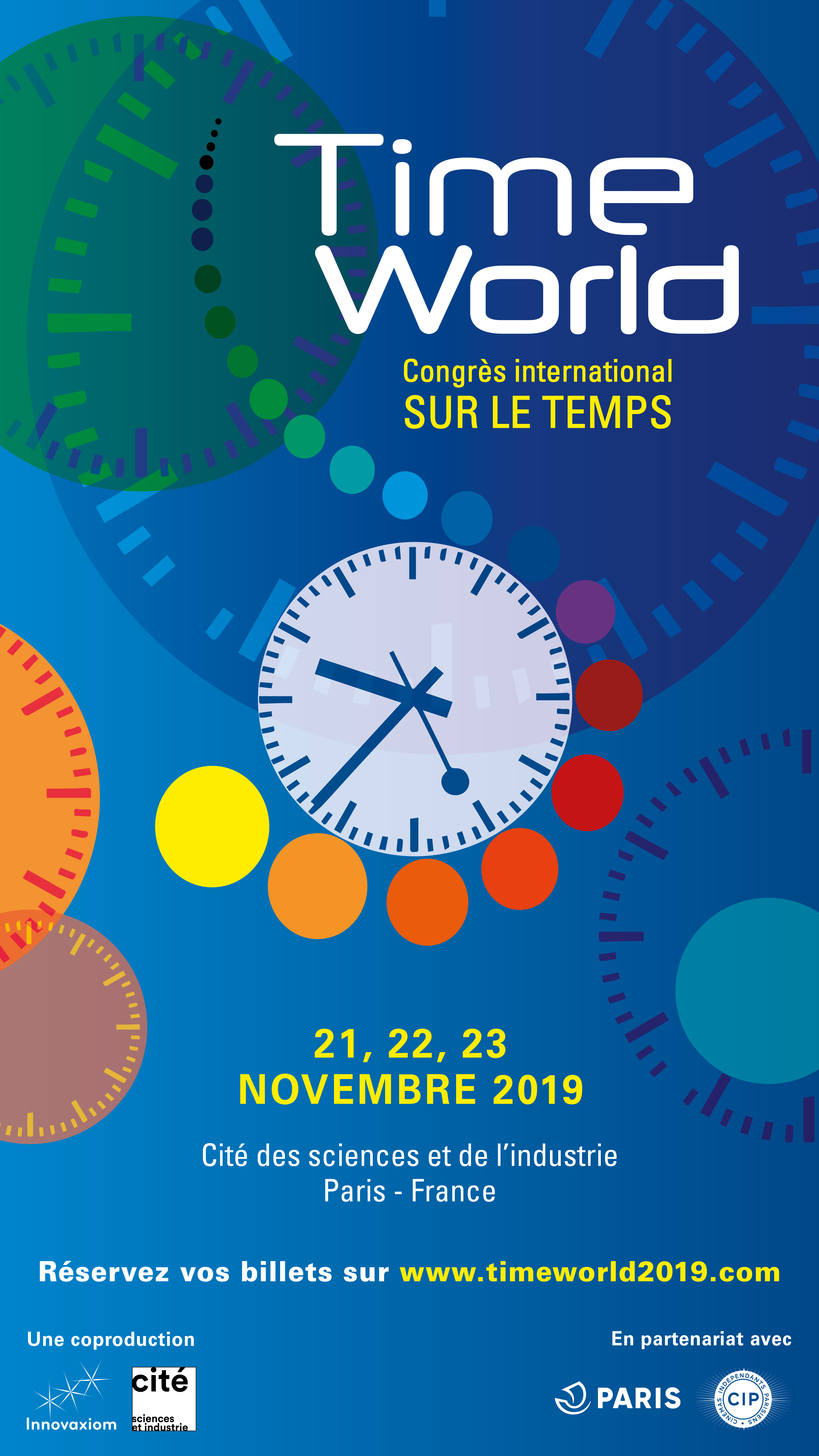General public Conference: William Phillips, 10th of December (Jussieu Campus, Paris)
William D. Phillips, Nobel prize in Physics 1997, Univerisité of Maryland, USA, will give a general public conference in French on the impact of quantum metrology.
Tuesday December 10th 2019 at 8pm. Location: Auditorium of the Pierre and Marie Curie Campus
4 place Jussieu 75005 Paris
Free entrance after mandatory registration here
Craft: The plateform used by the Time and Frequency “labex” for its new portal
FIRST-TF and CONNEX-TF seen by Bretagne Développement Innovation (BDI), creator and manager of the Craft platform which hosts CONNEX-TF
François Nez receives the Félix Robin 2019 award
The Félix Robin 2019 award, from the Société Française de Physique, goes to François Nez (LKB), for “the very good qualtiy of all his work”.
9th of December 2019 (Chatillon) – PhD defense of Paul Chapellier
Paul CHAPELLIER will defend his thesis on 9th of December 2019 at 2pm on the subject “Piezoelectric MEMS for Time and Frequency applications”, realized at ONERA under the supervision of Bernard DULMET (FEMTO-ST) and Pierre Lavenus (ONERA/DPHY).
The defense will take place in salle Contensou at the ONERA centre of Châtillon, 29 avenue de la Division Leclerc, 92320 Châtillon
Please contact sylvie.nicolle-douet@onera.fr for the formalities necessary to access the site
12th of December 2019 (Meudon) – PhD defense of Amina Saadani
Amina SAADANI will defend her thesis on 12th of December 2019 at 2:30 pm on the subject “bidimensional crystals for ultra-high quality factor micro/nano-piezoelectric resonators”, realized at ONERA under the supervision of Fabrice Sthal (FEMTO-ST), Olivier Le Traon and Pierre Lavenus (ONERA/DPHY).
The defense will take place in salle Ay-02-63 of the Centre de Meudon de l’ONERA, 8, rue des Vertugadins, 92190 Meudon
Please contact sylvie.nicolle-douet@onera.fr for the formalities necessary to access the site
IFCS-ISAF 2020: Call For Paper
We welcome you to IFCS-ISAF2020, a joint meeting that highlights and celebrates the shared interests and expertise of the Frequency Control and Ferroelectrics communities! Whether your interests are in atomic clocks, piezoelectric transducers, MEMS resonators, or other related topics shown below, you’ll find a welcoming and vibrant community of researchers and potential collaborators in Keystone next July.
Topics:
- Resonators, & Resonator CircuitsMaterials,
- Oscillators, Synthesizers, Noise & Circuit Techniques
- Microwave Frequency Standards & Applications
- Sensors & Transducers
- Optical Frequency Standards & Applications
- Fundamentals of Ferroelectricity and Piezoelectricity
- Materials Processing, Fabrication, and Integration
- Characterization and Measurement
- Ferroelectric-Enabled Applications
- Integrated Materials and Device Modeling and Design
- Thin Film Ferroelectrics for MEMS
- Timekeeping, Time & Frequency Transfer, GNSS Applications
2020 is the 100th Anniversary of the discovery of Ferroelectricity. Check the website for updates on Celebrations during IFCS-ISAF 2020.
Important Dates:
- Abstract Submission Deadline: February 17th
- Acceptance Notification: April 2nd
- Early Bird Registration Deadline: May 15th
TimeWorld – Congrès international sur le temps
TimeWorld en bref : 60 conférences et 5 tables rondes, 72 ateliers éducatifs et fablabs, 500 m² d’exposition, 3 spectacles d’exception.
Les quatre temps :
- Le temps mesuré : systèmes de mesure, astrophysique, cryptographie, systèmes de navigation, exploration spatiale, industrie du futur, cybersécurité.
- Le temps de l’évolution : paléontologie, biologie, géologie, médecine, biosphère, géosphère.
- Le temps perçu : neurosciences, sociologie, économie, finance, information numérique, mythanalyse.
- Le temps dans l’art : musique, littérature, science-fiction, cinéma, peinture, photographie, jeux vidéo.
21-22-23 novembre 2019, Cité des sciences et de l’industrie (Paris, France).
=> Plus d’informations, agenda, contenus, billetterie.

CONNEX-TF: your web portal of expertise and connected sectors to the Time & Frequency domain
The CONNEX-TF web portal displays an arranged vision of the thematic Time & Frequency domain.
Users are invited to:
– navigate by Time & Frequency expertise or socio-economical stakes;
– search for specific keywords;
– look up the detailed and summarised cards of the involved structures;
– contribute to keep up to date and to enrich the public information.
According to the selection, users have access to:
– the map of the involved structures;
– the list of the involved structures and their specificities linked to the selection.
The CONNEX-TF project, which is driven by FIRST-TF, fall within the following aims:
– to give a larger visibility to Time & Frequency activities;
– to help with the network’s development, by identifying works to do in partnership;
– to encourage to share information in a national and international context;
– to enable the identification of expertise to develop and of promising sectors.
18th of October 2019 (Paris) – PhD defense of Romain Karcher
Romain CALDANI will defend his thesis on 18th of October 2019 at 10:00 am on the subject “Atom interferometry for simultaneous measurement of g and its vertical gradient”, realized at SYRTE under the supervision of Franck Pereira Dos Santos and Sébastien Merlet.
The defense will take place in the salle de l’Atelier of the Observatoire de Paris (77 avenue Denfert Rochereau, 75014 Paris).
15th of October 2019 (Paris) – PhD defense of Romain Karcher
Romain KARCHER will defend his thesis on 15th of October 2019 at 2:00 pm on the subject “Implementation of an ultra-cold atom source to improve the accuracy of an atomic gravimeter”, realized at SYRTE under the supervision of Franck Pereira Dos Santos and Sébastien Merlet.
The defense will take place in the amphitheater of the Institut d’Astrophysique de Paris (IAP), accessible through the Observatoire de Paris at 77 avenue Denfert Rochereau, 75014 Paris.
